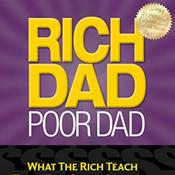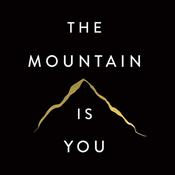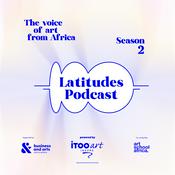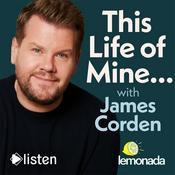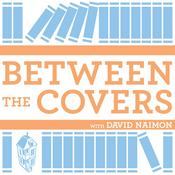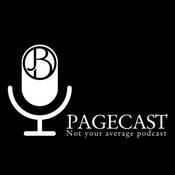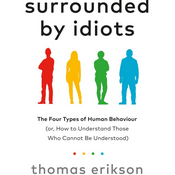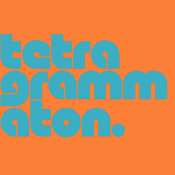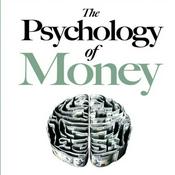Available Episodes
5 of 26
- Free Will by Sam Harris - Book SummaryFor a more detailed Summary you should 👉 Get our App here"Free Will" by Sam Harris is a concise yet provocative philosophical and neuroscience book that directly challenges the deeply ingrained human belief in free will. Harris, a neuroscientist, philosopher, and prominent atheist, argues that the concept of free will, as conventionally understood, is an illusion and fundamentally incompatible with our scientific understanding of the universe and the human mind.Harris's central thesis is that our choices, intentions, and even our conscious thoughts are ultimately the product of prior causes—a complex interplay of genetics, environmental influences, neural processes, and other factors beyond our conscious control. He contends that we do not initiate our thoughts or actions in a truly "free" or self-caused manner; rather, they arise from deeper, unconscious brain activity that we are not privy to.Key arguments and points made by Harris include:Neuroscientific Evidence: He cites research in neuroscience (such as experiments by Benjamin Libet) suggesting that brain activity related to a decision often precedes the conscious awareness of making that decision. This, he argues, indicates that our sense of conscious deliberation is an after-the-fact rationalization, not the origin of our choices.Determinism vs. Illusion: Harris doesn't necessarily argue for strict determinism in every sense, but rather that our actions are determined by factors we don't control, whether those factors are perfectly predictable or involve an element of randomness. In either case, he maintains, the traditional notion of free will doesn't hold.Moral and Legal Implications: Harris explores the significant ethical, legal, and social implications of abandoning the belief in free will. He argues that while it might undermine traditional concepts of retributive justice and blame, it can lead to a more compassionate and realistic view of human behavior, focusing on factors like rehabilitation and prevention rather than pure punishment for "chosen" wrongdoing.Consciousness and Control: He distinguishes between having a feeling of acting consciously (which we do experience) and actually being the ultimate, uncaused source of that action (which he argues we are not). We may feel like we are making choices, but these choices are products of underlying brain states and influences.The Incoherence of the Concept: Harris suggests that the very idea of truly "free" will, independent of prior causes, is difficult to coherently define or imagine."Free Will" is a concise, provocative, and often controversial read that challenges readers to reconsider deeply held intuitions about personal responsibility, choice, and the nature of the self. It is a crucial text for anyone interested in philosophy of mind, neuroscience, ethics, and the ongoing debate about the existence and implications of free will.--------18:17
- Tiny Habits by BJ Fogg - Book SummaryFor a more detailed Summary you should 👉 Get our App here"Tiny Habits: The Small Changes That Change Everything" by BJ Fogg, Ph.D., is a revolutionary behavior design book that offers a practical, science-backed method for creating lasting habits. Fogg, a Stanford University researcher and founder of the Behavior Design Lab, argues that the conventional wisdom of relying on willpower and motivation for habit formation is flawed. Instead, he proposes a system focused on making habits so small and easy that they become effortless to start and sustain.The core of Fogg's method is the Fogg Behavior Model (B=MAP), which states that a behavior happens when three elements converge at the same moment: Motivation, Ability, and a Prompt (or trigger).Motivation: While helpful, Fogg argues that motivation is unreliable and fluctuates. His method de-emphasizes high motivation as a requirement for starting new habits.Ability: This is the most crucial factor in Tiny Habits. Fogg teaches that to make a behavior happen consistently, it must be easy to do. He advocates for breaking down desired behaviors into "tiny habits"—versions so small they feel almost trivial. For example, instead of "exercise daily," a tiny habit might be "do two push-ups."Prompt: A prompt is a trigger that reminds you to do the behavior. Fogg emphasizes attaching new tiny habits to existing routines or events, creating "anchor moments." For instance, "After I brush my teeth (anchor), I will do two push-ups (tiny habit)."The book introduces the Tiny Habits method as a three-step process:Find your "Anchor Moment": Identify an existing routine you already do consistently.Choose your "Tiny Behavior": Select a version of the new habit so small it takes less than 30 seconds to complete and requires minimal effort.Celebrate Immediately: After performing the tiny habit, immediately and genuinely celebrate your success. This "celebration" creates a positive emotion that rewires your brain and wires the new behavior to the prompt, making it more likely to repeat.Fogg provides numerous practical examples and case studies for creating a wide range of habits, from improving health and fitness to boosting productivity and reducing stress. He emphasizes the power of positive emotion in habit formation, explaining that feeling good about doing the habit is more effective than sheer discipline."Tiny Habits" is a highly actionable guide for anyone struggling to make lasting changes. It demystifies habit formation, making it accessible and achievable by focusing on small wins, consistency, and leveraging the natural wiring of the human brain for sustainable behavior change. It's a foundational text for behavior design and personal growth.--------31:45
- The Law of Attraction by Esther and Jerry Hicks - Book SummaryFor a more detailed Summary you should 👉 Get our App here"The Law of Attraction: The Basics of the Teachings of Abraham" by Esther and Jerry Hicks is a foundational text in the self-help and New Thought movements, widely recognized for popularizing the concept of the Law of Attraction. The book presents the core philosophy channeled by Esther Hicks from a non-physical entity collective known as Abraham.The central tenet of the Law of Attraction, as articulated by Abraham through the Hicks, is that "like attracts like." This means that individuals attract into their lives whatever they focus on, whether consciously or unconsciously. The book posits that thoughts are vibrational energy, and these vibrations attract corresponding experiences, people, and circumstances.The core principles and teachings outlined in the book include:Vibrational Alignment: The idea that everything, including thoughts, emotions, and physical reality, is composed of energy and vibrates at a certain frequency. To attract what you desire, you must align your vibrational frequency with it.The Art of Allowing: This principle emphasizes the importance of releasing resistance, doubt, and negative thoughts that can block the manifestation of desires. It encourages a state of "allowing" good into one's life.The Emotional Guidance System: Abraham teaches that emotions serve as a valuable internal compass, indicating whether one is vibrationally aligned with their desires (positive emotions) or misaligned (negative emotions). The goal is to consistently reach for better-feeling thoughts.Deliberate Creation: The book advocates for consciously choosing thoughts and focusing on desires to actively manifest them. This involves visualization, positive affirmations, and feeling the emotions of having already achieved what is desired.The Power of Focus: What you focus on expands. The book stresses the importance of directing attention towards what is wanted, rather than what is unwanted, as sustained focus determines what is attracted."Rampage of Appreciation": A practice encouraged to elevate one's vibration by intentionally listing things one is grateful for, thereby attracting more positive experiences."The Law of Attraction" provides practical exercises and techniques designed to help readers apply these principles in their daily lives to manifest abundance, improved relationships, better health, and overall well-being. It frames the universe as a benevolent force responding to one's vibrational output.The book is presented as a spiritual guide and a manual for conscious creation, empowering individuals to understand their inherent power to shape their reality through their thoughts and feelings. It is a key text for anyone interested in manifestation, positive thinking, quantum physics of consciousness, and personal development based on vibrational principles.--------23:35
- The Tipping Point - Malcolm Gladwell - Book SummaryFor a more detailed Summary you should 👉 Get our App here"The Tipping Point: How Little Things Can Make a Big Difference" by Malcolm Gladwell is a highly influential sociology and social psychology book that explores how ideas, trends, messages, and behaviors spread like epidemics. Gladwell introduces the concept of the "tipping point" as the critical threshold or "boiling point" at which an idea or social phenomenon takes off and spreads rapidly, often unexpectedly, through a population.Gladwell argues that for a phenomenon to reach a tipping point, three key "rules" or agents of change must converge:The Law of the Few: This rule highlights the crucial role of specific, rare individuals who possess unique social gifts that enable them to spread information and influence others. Gladwell identifies three types of people essential for a social epidemic:Connectors: Individuals with an extraordinary knack for knowing many people across diverse social circles. They are the "hubs" of social networks.Mavens: Information specialists who are passionate about sharing knowledge and expertise with others. They are data banks and teachers.Salesmen: Charismatic individuals with powerful negotiation skills who can persuade people to adopt ideas or products. They are compelling communicators.The Stickiness Factor: This rule emphasizes that for an idea or message to spread, it must be memorable and compelling enough to stick in people's minds and prompt action. Gladwell examines how subtle changes in presentation or content can make a message far more impactful and "sticky." He uses examples from children's television to effective advertising.The Power of Context: This rule asserts that human behavior is highly sensitive to and influenced by the environment and immediate circumstances. Small changes in a setting or context can dramatically alter behavior and contribute to a tipping point. Gladwell discusses concepts like the "Broken Windows Theory" (how minor signs of disorder can escalate crime) and the optimal "group size" for effective communication.Throughout the book, Gladwell uses a variety of case studies and real-world examples to illustrate his theories. These range from the sudden popularity of Hush Puppies shoes and the dramatic drop in New York City's crime rate, to the effectiveness of specific anti-smoking campaigns and the diffusion of specific cultural trends."The Tipping Point" is lauded for its engaging narrative style, its ability to synthesize complex social phenomena into understandable principles, and its profound implications for understanding marketing, public health, social change, and the dynamics of fads and trends. It offers a framework for understanding how seemingly minor actions or shifts can lead to massive societal transformations.--------14:02
- Nexus by Yuval Noah Harari - Book SummaryFor a more detailed Summary you should 👉 Get our App here"Nexus: A Brief History of Information Networks from the Stone Age to AI" by Yuval Noah Harari is a profound historical analysis that traces the evolution and impact of information networks on human societies from our earliest origins to the impending age of Artificial Intelligence (AI). Building on his previous works like "Sapiens," Harari argues that the way humans have collected, processed, and disseminated information has been the fundamental driving force behind our progress, cooperation, and the very structure of our civilizations.The book takes readers on an expansive journey through millennia, exploring how various information technologies—from the development of language and storytelling in the Stone Age, to the invention of writing, the printing press, mass media, and finally the internet and AI—have continuously reshaped human reality. Harari examines how these changes have influenced power structures, political systems (like democracy vs. totalitarianism), economic models, and even our understanding of truth and mythology.A central theme is the intricate and often precarious relationship between information and power. Harari illustrates how those who control the flow and narrative of information have historically held immense authority, whether they were ancient priests, scribes, or modern media moguls. He also highlights how information networks have been susceptible to errors, misinformation, and deliberate deception, leading to historical catastrophes from ancient dogmas to the atrocities of totalitarian regimes.Crucially, "Nexus" then pivots to the unprecedented challenges and opportunities presented by AI. Harari contends that AI represents the most significant shift yet, as it can not only process and transmit information but also create, analyze, and potentially control it autonomously. He raises urgent questions about the implications of AI's growing influence on human decision-making, consciousness, privacy, and the very foundation of shared reality. Harari warns against the dangers of unchecked AI leading to new forms of digital dictatorships or the erosion of human agency.Ultimately, "Nexus" is a thought-provoking, interdisciplinary exploration of human history, philosophy, and technology. It urges readers to critically examine the ethical dilemmas and societal choices we face regarding the future of information and AI, emphasizing that while technology offers immense potential, responsible stewardship is paramount to safeguard humanity's future.--------22:15
More Arts podcasts
Trending Arts podcasts
About Breef - English Book Summary
Welcome to Breef. Daily book summaries. Quick, deep, practical. We distill the world’s best non-fiction books into key ideas, powerful stories, and real-life examples. Feels like you’ve read the book. Learn faster. Think sharper. Apply more. No fluff, just value. New episode every day. Follow to stay ahead. Perfect for busy minds, curious thinkers, and lifelong learners. Support the show by sharing with friends and leaving a rating. One book. One day. One step smarter.
Podcast websiteListen to Breef - English Book Summary, Rich Dad Poor Dad In English and many other podcasts from around the world with the radio.net app

Get the free radio.net app
- Stations and podcasts to bookmark
- Stream via Wi-Fi or Bluetooth
- Supports Carplay & Android Auto
- Many other app features
Get the free radio.net app
- Stations and podcasts to bookmark
- Stream via Wi-Fi or Bluetooth
- Supports Carplay & Android Auto
- Many other app features


Breef - English Book Summary
Scan code,
download the app,
start listening.
download the app,
start listening.
